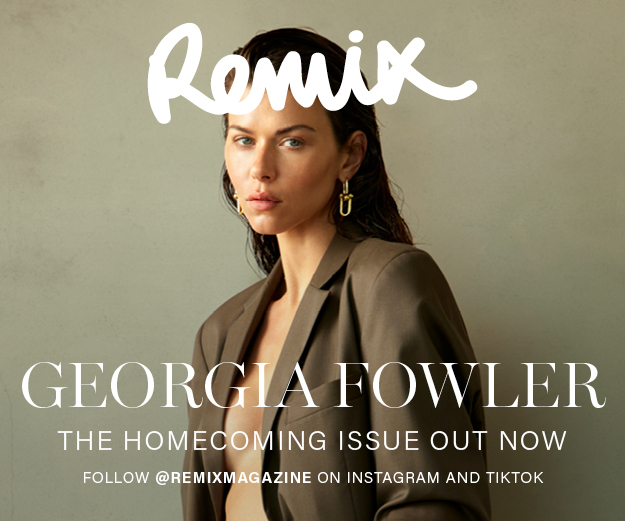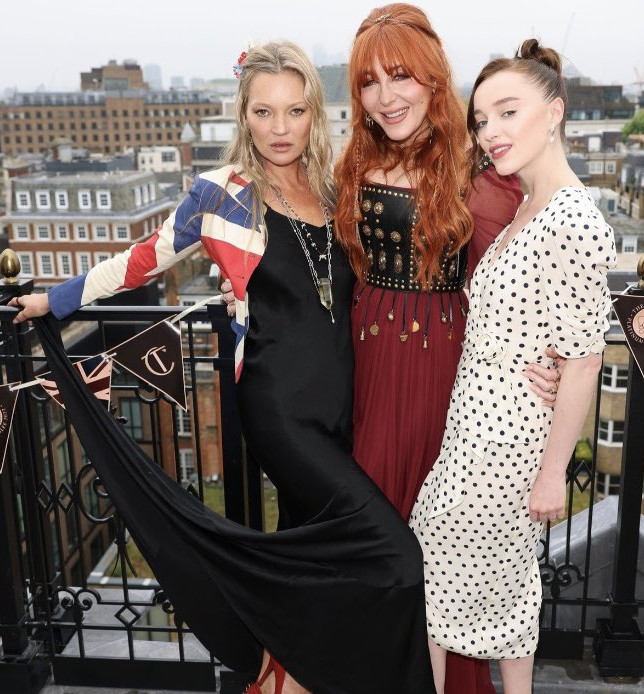Polar explorer Felicity Aston on how to rise to our generation's greatest challenge
As children, most of us tend to have audacious career expectations. I, for example, wanted to be a dancing doctor, to make people happy and to make people better. Felicity Aston never necessarily wanted to be a polar explorer—it wasn’t the pipe dream—but at 23, she found herself in Antarctica, and a life of adventure unfolded.
In the decades since, Felicity has been awarded all sorts of prestigious honours in her career, including being a Member of the Order of the British Empire, a British explorer, author, and climate scientist. She was the first person to ski alone across the Antarctic land mass (a journey that took 59 days), has led all-female expeditions through the Arctic, and most recently, she pioneered the B.I.G (Before It's Gone) expedition, an all-female expedition project to research Arctic sea ice supported by Rolex’s Perpetual Planet Initiative. It’s fair to say that her work takes her places that most of us could only dream of.
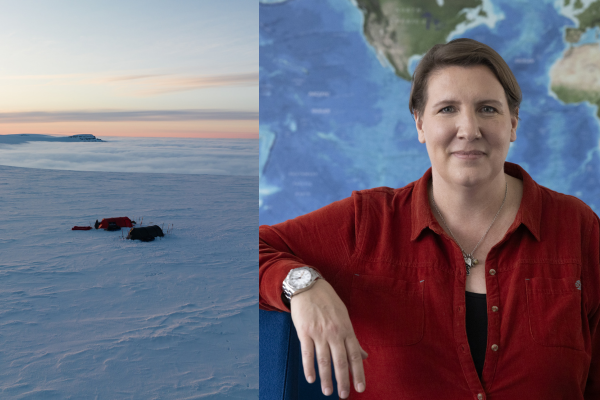
In fact, for nearly a century, the celebrated watchmaker has accompanied pioneering explorers like Felicity, pushing back the boundaries of human endeavour. And much of the world’s foremost work to understand the world’s environmental challenges and devise solutions that will restore balance to our ecosystems, like Felicity’s expedition, has been supported by the Perpetual Planet Initiative after its launch in 2019. It is a purpose-led branch of Rolex that connects more than 20 of the world’s most curious and driven minds through a network to share likeminded ideas, and offer financial support to make daring projects a reality. ‘There are incredible leaps forward that are going on,’ Felicity begins, ‘and the initiative helps shine a light on some of those so that we've got those good, positive stories to tell.’ And it’s an initiative that our planet, according to Felicity, could clearly use more of.
‘I wish that more organisations with the stature that Rolex has put as much effort into supporting things like the Perpetual Planet Initiative,’ she tells me, aware of the challenge she’s posing. ‘There are lots of different ways of doing it but can you imagine, if all the big companies of the world put as much effort into different projects as has been put into the Perpetual Planet Initiative, what a difference that would make?’ She sets the tone for our conversation early, and on that, I totally agree.
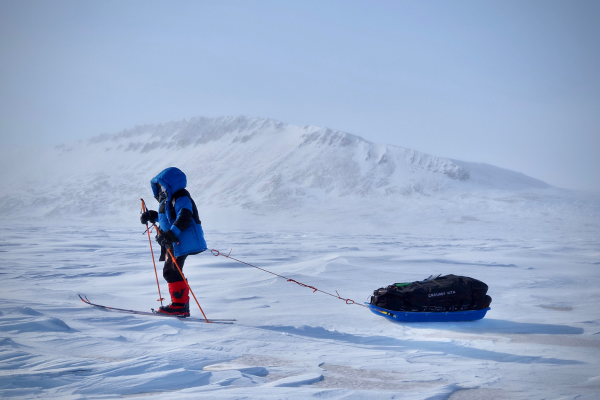
Felicity’s first expedition—the one that confirmed her love for icier terrains—was a two-and-a-half-year tenure for the British Antarctic Survey where she found her feet. She was doing everything an explorer should be—Felicity recounted one harrowing experience while crossing a glacier during these early years, encountering catastrophic winds and an icy, wind-scoured surface that made it incredibly difficult to gain traction and progress. At one point, she had to pitch her tent and try to rest, constantly waking to check that the tent wasn't being blown away. After hours of draining effort, she finally reached the top of the glacier, only to realise that the wind had dropped into a large basin just a few metres up the hill and that she had been fighting against the elements unnecessarily. It taught her a valuable lesson early on: ‘There is never a right time to do anything if we're talking about expeditions. There's always a million reasons why now is not the right time to try and make an expedition happen.’
Despite all its excitement, there were challenges beyond the obvious in the extremities of the world. Explorers spend two winters in the south, where some days see no sunlight, living among a skeleton crew that they definitely do not choose. But Felicity’s love for it must have outweighed the hardships: ‘When I left Antarctica, I found that it was an itch under my skin that was going to endure.’ In time, after her return to the UK, she began putting together her own expeditions. She ventured north to the Arctic next, somewhere that felt a little closer to home. But the southern pull prevailed, and in the decades since she’s returned to the continent countless times. It’s not always easy to get there, especially at first. So, rather than waiting for opportunities, Felicity has built her career on creating her own. ‘I think it’s hard to make as a career,’ she tells me. ‘There is no framework for doing that, and I think there is a large element of luck.’ It is a fraught industry: opportunities come along, but you can make your own luck, too—it’s what the field was forged on.
While her expeditions to the polar regions have been undoubtedly thrilling, Felicity also speaks of moments of self-doubt and uncertainty that would sometimes creep in, especially in the early stages of her career. ‘I remember being in my late 20s, and at least once a week I thought, ‘Oh, my God, what am I doing?’ I thought maybe I should get a job in the city, like everybody else, and do something else.’ But resilience and tenacity are qualities that endure, of which Felicity has ample. She’s ventured to both South and North poles, crossed continents on skis, had hiccups and learning moments along the way—of which she generously shared many with me—and in the relatively short time we spent talking, it became clear to me that Felicity Aston is someone who holds the necessary perspective to see a world plagued by extraordinary challenges with great hope.
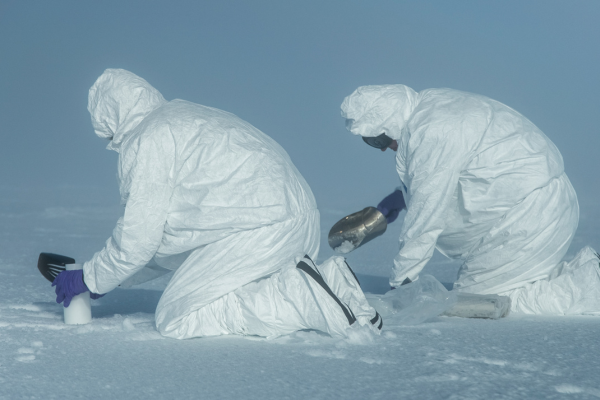
We also talk about what it means to nurture—a cornerstone topic behind our most recent issue of Remix—to nurture our planet and to nurture each other. She tells me of her great respect for the explorers who have gone before her. The ones who have paved the way for new discoveries, and who, in a sense, have given Felicity the nurturing she needs to make a career like this possible.
While the very definition of being an explorer involves venturing into the unknown, it would also be virtually impossible, says Felicity, without the knowledge imparted by those who have ventured before her. ‘I've had some wonderful mentors,’ she shares. ‘I'm not sure they would consider themselves mentors, but to me, that's what they've been.’ I ask what mentorship might look like, and she explains that sometimes it comes in the form of the right piece of advice at the right time, an opportunity, or something more esoteric—sitting on the phone and talking ideas over when some just need to be bounced around. ‘Without those steadying voices, it might well have turned out very differently,’ she confesses. ‘So when I am talking to young people that want to do something similar, that want to carve a life out of this, one of the things that I'm always saying is, in my opinion, surround yourself with the right people. That includes both cultivating those relationships that are very precious to you, but also perhaps letting fade out the ones that are less helpful.’ And while the former might seem nerve-wracking, it’s likely the latter that proves a greater challenge in the end.
But what’s it like for women in the field? That answer’s not so straightforward. Felicity tells me that her experiences in exploration and science have provided her with a unique perspective on the challenges and progress made in this traditionally male-dominated realm. She expressed frustration at the lingering sexism and gender divide, questioning ‘what right did anyone have to say whether we should be allowed to go?’ to places like Antarctica. Determined to amplify female voices and cultivate women-led opportunities, Felicity has organised all-female expeditions, though she laments the tendency for women's events to preach to the choir, telling me ‘we need to start talking to audiences of men’ and have them really listen. Felicity's own journey has, in some senses, been marked by the need to constantly prove herself and fight against biases and preconceptions about women's capabilities in these fields. ‘We've got to just get past this,’ she tells me. ‘I feel really annoyed that, in my lifetime, women are still considered inferior in many parts of the world, including my own backyard.’
She also mentions in passing, maybe not quite realising the full-circle moment of it, or how it embodies the idea of nurturing we spoke of earlier, reading her son books at night about Tintin travelling to the moon, somewhere that, until our parents were born, seemed so utterly off limits. It’s hard to imagine a world where her son won’t grow up with the same adventurous spirit. And as Felicity tells me, it’s hard for us now to imagine a world where there were these great unknowns. It’s an idea she has a hard time not applying to her own works—if only she’d mapped some expeditions differently or tried to prove a different hypothesis. ‘I think it's very hard for us to accurately conjure in our minds what it was like to not know that information, to not to be in that position of unknowing, and to truly appreciate the frustration,’ she tells me.
On the other hand, while critical, or at least sceptical of the world’s current global connectivity, she tells me how social media has shifted the landscape of exploring. One of her most jarring expedition experiences involved engaging with audiences in real-time during her travels. She described how, during a 2008-2009 expedition to ski to the South Pole, her team could give a talk from their tent just seven miles outside the South Pole, interacting with an audience in London, even opening the tent door to show the audience the view. Felicity also spoke about using satellite phones to share updates from the expedition, allowing people to feel like they were travelling along with the team. It speaks to the ever-changing nature of exploring in a rapidly modernising world. ‘We're going to have to think about it differently,’ she suggests.
One must think, what use is collective concern for our own wellbeing, if we are not also concerned with the wellbeing of our planet?
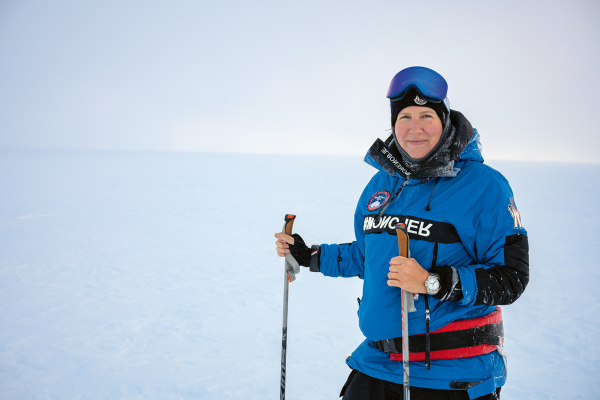
Felicity tells me she lives on a tiny island—and when she says tiny, she means it. For most of the year, Felicity Aston is based on Vigur—a small Icelandic island home to quite literally just her family, and in the freezing winter months, they have to pack up and move to the mainland. It really is that remote—but it puts her at the forefront of her work. But she reminds me that while she can observe the impacts of climate change firsthand, we’re all privy to the planet’s stressors. ‘We are all so close to this,’ she starts. ‘When I first started doing expeditions, going out and showing people the changes happening in the Arctic was insightful. It made people think. It changed their perspective. But I wonder now if perhaps it's unhelpful because I've noticed that when I show people footage of these places full of snow and ice, there is a slight element of people going, ‘well, oh, that's all right then, there's still loads of snow and ice left’.’
And it’s true. The climate change we’re experiencing doesn’t look like we were told it would in Hollywood blockbusters of the early 2000s. But it is happening: wildfires, storms, melting glaciers down south, summer flooding in the centre of our city. These are all markers of a rapidly changing climate that is not coping with our increased presence. ‘We need to make what seems impossible now into reality,’ Felicity implores—she means cutting down our emissions. ‘We know that that is the root cause of everything. We need to cut down on our emissions. Yes, it's hard. Yes, we haven't got a perfect solution, but we need to do something.’
I ask Felicity how she thinks people can still stay engaged. As individuals, we are responsible for such a minute amount of emissions, compared to just 57 companies responsible for 80% of the world’s greenhouse gases. I can completely understand how some people might feel disarmed, that their keep cup or electric bike isn’t going to fix the world’s problems, and so they check out. But she reminds me that our power is greater than seemingly small decisions, and in fact, we can make the biggest difference.
She tells me about a quote from Dr Sylvia Earle—a Rolex Testimonee since 1982—that drives her through the harder moments of this fight, one which was hard to paraphrase but spoke of how we had lost 50% of the biodiversity in the world’s oceans, but that meant we still had 50% left to save. ‘Whenever we get depressed about how badly things are going, it's like, yeah, but you've still got all of this, and it's so worth saving.’ I guess this just proves how possible anything feels with a positive mindset.
I’ve come to learn that this is just one of the complicated emotions Felicity has to deal with in her work. She explains how, on the one hand, she wants to celebrate finding plastics buried deep in the snow of untouched Arctic climates because that is the aim of her research, but at the same time, how tragic and devastating her findings are in the bigger picture—no matter what she set out to prove. It’s an ugly reminder of the necessity of her message: ‘We can't afford to stop fighting,’ she shares, ‘but we need to make sure everyone is aware that we are in for the fight of our lives, just as we were a couple of years ago in the pandemic, and just as then, we can make the impossible happen.’
As she tells me, it is a huge period of change, but we both agree that it is a wonderfully exciting place to be at this time, on this planet, right now. ‘Probably for the first time in human history, we have the resources,’ Felicity says. ‘We have the education, and we have the capacity to really make some wonderful choices for the future of the human race.’
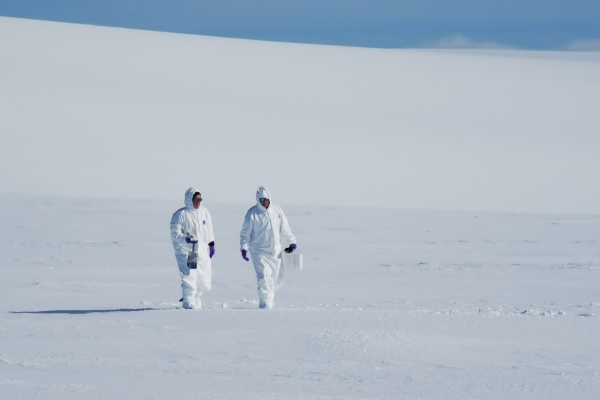
It was getting closer to midnight in New Zealand, and she had a scientific paper to write, but we could have spoken for hours from our antipodes. Felicity is utterly inspiring on topics that could feel otherwise gloomy. Her passion for change is effervescent; motivating. Her excitement about what might come—the nurturing we can collectively offer our planet—is palpable. As she tells me: ‘We're capable of such amazing innovation and compassion and tenacity and integrity, and we're capable of amazing things, and we've shown it again and again and again.’ Really, we just have to get out there and get on with it. Because Felicity was sure of one thing—we can’t afford to wait anymore.


